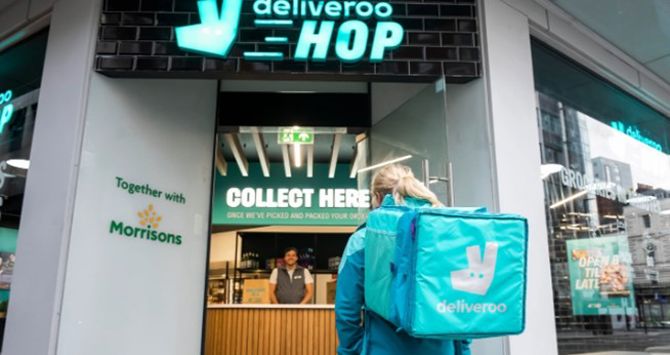The exponential growth of e-commerce experienced during the pandemic has given way to another reality as consumers return to physical stores and rising inflation puts pressure on disposable incomes. This shift has been particularly noticeable across developed markets such as those in Western Europe, a region which recorded a substantial decline in retail e-commerce sales in 2022. For operators, the situation has been exacerbated by increasing labour and transportation costs which further squeezed their profit margins. As a result, pure online players and legacy retailers with omnichannel operations have been reconsidering their approach to e-commerce order fulfilment by embracing strategies such as community group buying, rethinking the quick commerce model, and adopting more flexible return policies.
Strengthening consumer power with online community group buying
Online community group buying offers significant discounts on products purchased in large quantities by consumers. This model leverages bulk buying, predictable demand, and direct purchases from manufacturers to achieve economies of scale, reduce transportation costs, and pass on savings to customers. Initially becoming popular across second- and third-tier cities along China’s eastern seaboard, online community group buying spread to both first-tier cities and rural areas of the Chinese hinterland during the pandemic thanks to platforms like Pinduoduo, which successfully developed a discount-led community group buying model.
26% of Spanish shoppers report that finding the best price is the primary motivation to shop online
Source: Euromonitor's Voice of the Consumer: Lifestyles Survey
As consumers become increasingly price-sensitive, the model has gained more traction across emerging markets in Southeast Asia and Latin America, leading to platforms like Facily emerging in Brazil. Similarly, in Western Europe, Spain-based online supermarket Buo also bet on collective purchases to effectively target the 26% of Spanish shoppers that report that finding the best price is their primary motivation to shop online in 2023, according to Euromonitor’s Voice of the Consumer: Lifestyles Survey.
Online community group buying also helps to foster a sense of community among customers and support brand loyalty. Additionally, the emergence of the agent-led models, which recruit agents to champion the model within local communities, has been enabling start-ups like Gobillion in India and Kapu in Kenya to address last-mile delivery challenges, like the absence of registered physical addresses to deliver goods to.
Expanding the delivery ecosystem through diversification
The combined effects of the revival of pre-pandemic shopping behaviours and shrinking disposable incomes have been particularly challenging for quick commerce services that previously thrived on impulse purchases during the pandemic. As a result, Getir – a Turkish quick commerce company that has become the leading player in the space in Europe – announced in June 2023 that it will exit the French market entirely in the face of a harsher business climate.
In response to these challenges, “quick commerce as a service” has begun to emerge, as quick commerce companies and third-party delivery services seek to diversify their revenue streams by allowing chained operators to leverage their technology and logistic capabilities to offer faster delivery options at efficient costs. For instance, in November 2022, Kuwait-based foodservice delivery player Talabat partnered with Aswaaq Retail, an Emirati supermarket and mall operator, to extend its dark store management solution to the retailer, allowing Aswaaq to function as a quick commerce retailer in its own right.
Deliveroo, a UK-based delivery company that also dabbles in quick commerce, also reviewed its model by incorporating click-and-collect kiosks in its dark grocery stores. Similarly, GoPuff – the leading quick commerce player in the US – expanded options to accommodate new features like scheduled delivery and pick-up in stores. These alternative fulfilment methods streamline the delivery process and enhance customer experiences.

Image source: Deliveroo
Revising return policies to control costs
49% of online consumers consider free returns a preferred feature when shopping online
Source: Euromonitor International Voice of the Consumer: Digital Survey
Historically, online retailers relied on value-added services like free return policies to gain a competitive edge. This makes sense; according to Euromonitor’s Voice of the Consumer: Digital Survey, 49% of online consumers in 2023 considered free returns to be a preferred feature when shopping online. However, the trend also led to the expansion of shopping habits like "bracketing", where customers purchase multiple versions of a single product and return all but one, negatively impacting online retailers' operating costs.
As the inflationary crisis persists in 2023, more businesses are revaluating their return policies to address the rising cost of repackaging and reshipping goods. For example, apparel retailer Zara adjusted its return policies in 2022 by implementing a GBP1.95 fee for online returns while offering free in-store returns in the UK in a bid to reduce operating costs. Pushing digital consumers to use free in-store returns in this way helps to address the concerns of retail professionals, 40% of whom indicated that resolving conflicts across various channels was an obstacle to developing successful omnichannel strategies in 2022, according to Euromonitor’s Voice of the Industry: Retail Survey.
In conclusion, it is crucial for online retailers to strike a balance between prioritising convenience, gaining market share, and protecting profit margins. By embracing strategies such as those above, online retailers can navigate inflationary pressures and still deliver a seamless shopping experience for their customers, which is a win-win situation for all.
Read our article What is Driving Global Inflation? for more analysis on the drivers of global inflation.
